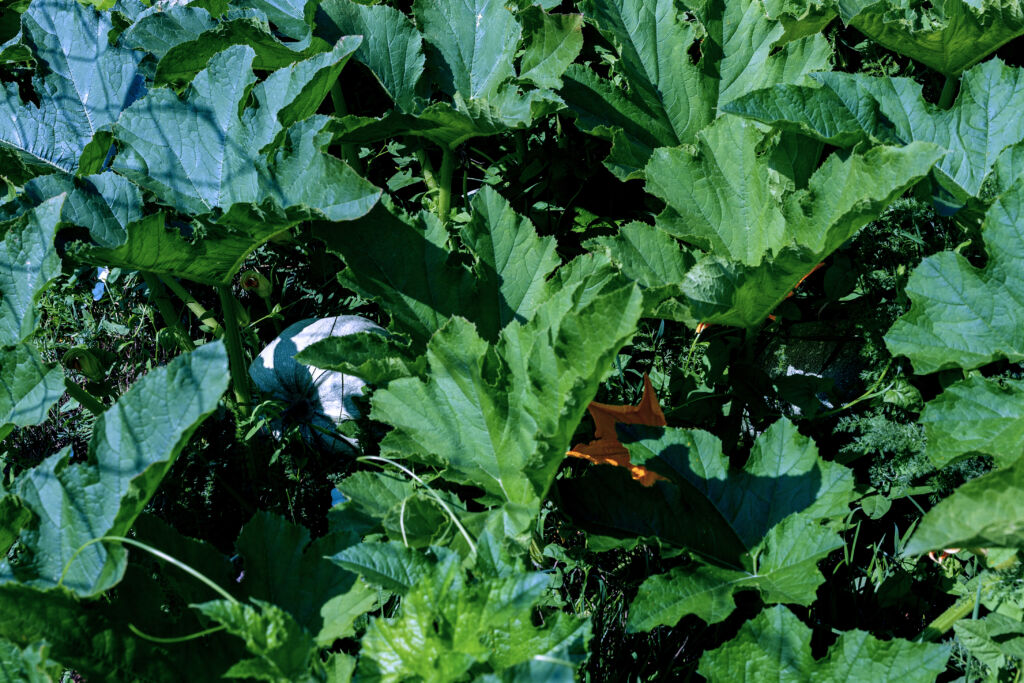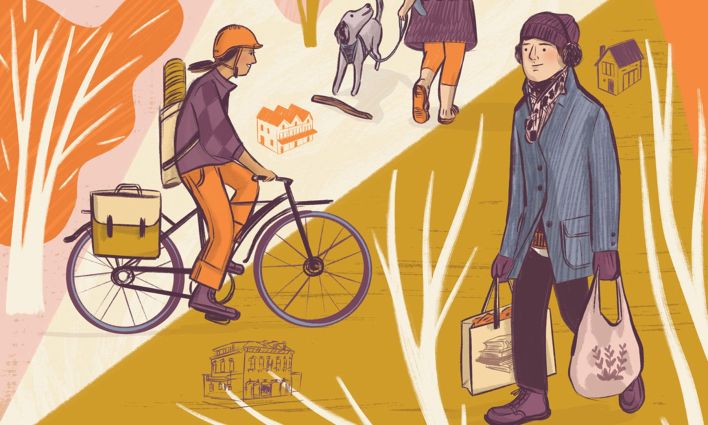What do reconciliation and decolonization mean? How can we, as settlers in this place, begin to repair the harm that has been and continues to be done to First Nations, Inuit, and Métis (FNIM) communities across the country?
These questions can feel insurmountable. So at the Monitor, we decided to do something about them.
As settlers, we have a responsibility to understand how the history of colonization creates the present-day conditions for harm, and to commit to repairing the damage and undoing these systems. To that end, we are introducing a new feature exploring the broader history of Canada’s colonial legacy. We will share the recommendations of the Truth and Reconciliation Commission, the United Nations Declaration on the Rights of Indigenous Peoples, and the Missing and Murdered Indigenous Women and Girls National Inquiry’s Final Report as guideposts for how reconciliation and decolonization could look. Every issue of the Monitor will be connected to a conversation about how we can commit to doing better, and the work required to do so.
The colonial legacy and food
“[Indigenous] livelihoods were based on access to the land; colonization disrupted that access and introduced new illnesses to North America. Colonial policies helped wipe out food sources and confined [Indigenous] people to poorly located reserves, with inadequate sanitation and shelter.”1
“This disregard for [Indigenous] health and well-being was consistent with the long-established patterns of colonialism: the introduction of new diseases, the disruption of traditional food sources, and the concentration of people on unproductive land and the housing of them in cramped, unsanitary dwellings.”2
“Many participants discussed the impact of the killing of Inuit sled dogs in the mid-20th century. As one participant described, the sled dogs were an essential part of Inuit people’s livelihood, serving as protectors and companions while facilitating transportation and hunting. Participants discussed how losing the sled dogs, as well as losing traditional hunting skills and being forced into stationary communities, contributed to poverty, food insecurity, and a sense of anger, frustration, and purposelessness among Inuit youth and men. As one Inuk explained, “They used the agricultural law from the South to justify the kill[ing] of the dogs and killed the lives of those men as they knew it.”3
Where we are now
“To deny one’s food is to deny them of their culture.”4
“The Canadian state has caused Indigenous women, girls, and 2SLGBTQQIA people to be removed from their homelands and territories and from their families and communities. They experience disproportionately high rates of poverty and insurmountable barriers to obtaining secure housing, food, education, employment, transportation, and other basic needs. Indigenous children and the elderly are especially vulnerable under these circumstances.”5
“We identify a number of factors as foundational in the ongoing violation of cultural, health, security, and justice-related rights. But the violation of these rights also has deep historical roots. In the area of culture, for instance, some of the most egregious rights violations include the early logic of discovery and the assertion of Canadian sovereignty, the regulation of Indigenous identities and governance, and the attempt to assimilate Indigenous Peoples in the context of residential schools and, later on, within the Sixties Scoop and child welfare systems. In the area of health, the impact of colonization in northern communities is particularly important, as it is connected to relocations and the lack of food security.”6
“So my fear is that this generation will not have any of the knowledge of what my generation had because we are on a caribou-hunting ban. We can no longer hunt our caribou. Our salmon is in jeopardy due to methylmercury concerns. Our seals are in jeopardy due to methylmercury concerns, and we know that development takes away from the natural habitat of our animals and sometimes their breeding grounds, and I’m fearful, I really am, that the more Labrador gets exploited, the more our culture will diminish, and that’s a fact…. Many of us here are [afraid], and that would be a very sad day for me.”7
“We have a generation that are stuck because they don’t know traditional practices for resiliency and survival. They don’t have an education that provides that opportunity so that they can’t fall back to the traditional skills, but they also don’t succeed in the wage economy and they are stuck in the middle.”8
“Participants advocated for equitable access to basic needs, such as shelter and food, along with increased support to attain higher levels of education and employment.”9
Where can we go from here?
Restoring access to the culture and the land
Article 24 1. "Indigenous peoples have the right to their traditional medicines and to maintain their health practices, including the conservation of their vital medicinal plants, animals and minerals. Indigenous individuals also have the right to access, without any discrimination, to all social and health services."10
The Canadian government endorsed UNDRIP in 2016. On June 21, 2021, Bill C-15, the United Nations Declaration on the Rights of Indigenous Peoples Act received Royal Assent. This Act is intended to provide the capacity to the federal government to fully implement UNDRIP in Canada. Access to traditional food systems is a vital part of cultural restoration but also plays a vital role in improving health outcomes for FNIM communities.
Improving employment and education opportunities
Truth and Reconciliation Commission Call To Action 7. "We call upon the federal government to develop with [Indigenous] groups a joint strategy to eliminate educational and employment gaps between [Indigenous] and non-[Indigenous] Canadians."11
Calls for Justice for All Governments: Human Security 4.1 "We call upon all governments to uphold the social and economic rights of Indigenous women, girls, and 2SLGBTQQIA people by ensuring that Indigenous Peoples have services and infrastructure that meet their social and economic needs. All governments must immediately ensure that Indigenous Peoples have access to safe housing, clean drinking water, and adequate food."12
12.4 "We call upon all governments to prohibit the apprehension of children on the basis of poverty and cultural bias. All governments must resolve issues of poverty, inadequate and substandard housing, and lack of financial support for families, and increase food security to ensure that Indigenous families can succeed."13
Why this matters for food security: the income and employment gaps between Indigenous and and non-Indigenous people living in Canada directly impacts their ability to continually afford adequate, nutritious food.
Measuring and improving health outcomes
UNDRIP Article 24. 2. "Indigenous individuals have an equal right to the enjoyment of the highest attainable standard of physical and mental health. States shall take the necessary steps with a view to achieving progressively the full realization of this right."14
Truth and Reconciliation Commission Call To Action 19. “We call upon the federal government, in consultation with [Indigenous] peoples, to establish measurable goals to identify and close the gaps in health outcomes between [Indigenous] and non-[Indigenous] communities, and to publish annual progress reports and assess long term trends. Such efforts would focus on indicators such as: infant mortality, maternal health, suicide, mental health, addictions, life expectancy, birth rates, infant and child health issues, chronic diseases, illness and injury incidence, and the availability of appropriate health services.”15
Why this matters for food security: food security directly affects health outcomes. Addressing food insecurity and food sovereignty for FNIM communities can improve indicators including maternal health, mental health and chronic disease management. Monitoring these health outcomes is an important first step. Addressing the disparities between Indigenous and non-Indigenous communities is a critical next step.
Notes
1 Truth and Reconciliation Commission of Canada. (2015). Page 101. Honouring the Truth, Reconciling for the Future, Summary of the Final Report of the Truth and Reconciliation Commission of Canada, Retrieved from: https://publications.gc.ca/col...
2 Truth and Reconciliation Commission of Canada. (2015). Page 206. Honouring the Truth, Reconciling for the Future, Summary of the Final Report of the Truth and Reconciliation Commission of Canada, Retrieved from: https://publications.gc.ca/col...
3 The National Inquiry into Missing and Murdered Indigenous Women and Girls. (2019). Page 108. Reclaiming Power and Place: The Final Report of the National Inquiry into Missing and Murdered Indigenous Women and Girls, Volume 1b, Retrieved from: https://www.mmiwg-ffada.ca/fin...
4 Nourish Healthcare, on the TRC findings. Retrieved from: https://www.nourishhealthcare....
5 The National Inquiry into Missing and Murdered Indigenous Women and Girls. (2019). Page 614. Reclaiming Power and Place: The Final Report of the National Inquiry into Missing and Murdered Indigenous Women and Girls, Volume 1a. Retrieved from: https://www.mmiwg-ffada.ca/fin...
6 The National Inquiry into Missing and Murdered Indigenous Women and Girls. (2019). Page 230. Reclaiming Power and Place: The Final Report of the National Inquiry into Missing and Murdered Indigenous Women and Girls, Volume 1a. Retrieved from: https://www.mmiwg-ffada.ca/fin...
7 Kim C.-M., the Executive Director of the AnânauKatiget Tumingit Regional Inuit Women’s Association of Nunatsiavut, quoted in The National Inquiry into Missing and Murdered Indigenous Women and Girls. (2019). Page 479. Reclaiming Power and Place: The Final Report of the National Inquiry into Missing and Murdered Indigenous Women and Girls, Volume 1a. Retrieved from: https://www.mmiwg-ffada.ca/fin...
8 Participant in Inuit Perspectives session, quoted in The National Inquiry into Missing and Murdered Indigenous Women and Girls. (2019). Page 108. Reclaiming Power and Place: The Final Report of the National Inquiry into Missing and Murdered Indigenous Women and Girls, Volume 1b, Retrieved from: https://www.mmiwg-ffada.ca/fin...
9 The National Inquiry into Missing and Murdered Indigenous Women and Girls. (2019). Page 142. Reclaiming Power and Place: The Final Report of the National Inquiry into Missing and Murdered Indigenous Women and Girls, Volume 1b, Retrieved from: https://www.mmiwg-ffada.ca/fin...
10 United Nations. (n.d.). Page 18. The United Nations Declaration on the Rights of Indigenous Peoples.
11 Truth and Reconciliation Commission of Canada. (2015). Page 5-6. Truth and Reconciliation Commission of Canada: Calls to Action. Retrieved from: https://www2.gov.bc.ca/assets/...
12 The National Inquiry into Missing and Murdered Indigenous Women and Girls. (2019). Page 181. Reclaiming Power and Place: The Final Report of the National Inquiry into Missing and Murdered Indigenous Women and Girls, Volume 1b, Retrieved from: https://www.mmiwg-ffada.ca/fin...
13 The National Inquiry into Missing and Murdered Indigenous Women and Girls. (2019). Page 194. Reclaiming Power and Place: The Final Report of the National Inquiry into Missing and Murdered Indigenous Women and Girls, Volume 1b, Retrieved from: https://www.mmiwg-ffada.ca/fin...
14 United Nations. (n.d.). Page 18. The United Nations Declaration on the Rights of Indigenous Peoples.
15 Truth and Reconciliation Commission of Canada. (2015). Page 6. Truth and Reconciliation Commission of Canada: Calls to Action. Retrieved from: https://www2.gov.bc.ca/assets/...







